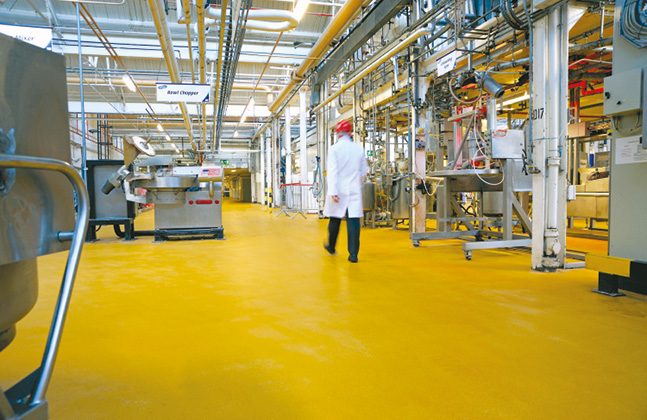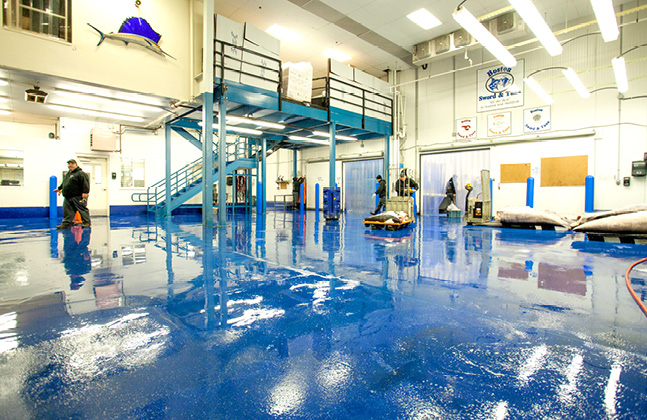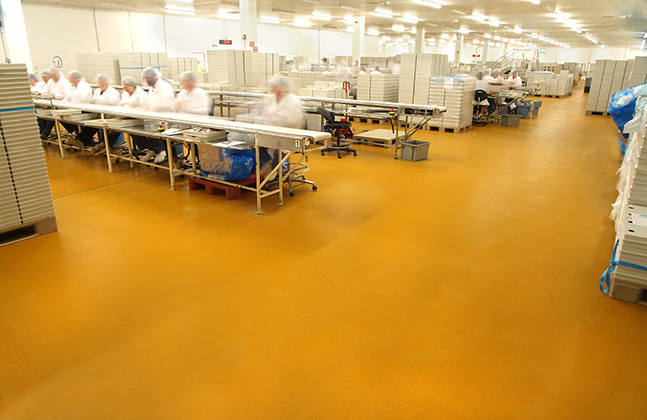It is always a challenge when building a new food processing facility or modifying an existing structure and much of this is down to the serious financial outlay that comes hand in hand with the project.
Too many businesses are shortsighted during the process of selecting the flooring for their plant. These days it is common for companies to cut expenses in the short-term with blatant disregard for the effect that their belt tightening may have on their flooring in the future.
From my experience I know that folks tend to cut corners to save time and money, however I also know that this has led to costly and time consuming problems further down the line. If the flooring is not correct for the application, then constant issues will occur.
In this industry, anything that can go wrong, will go wrong. This is why it is imperative that firms ensure that everything is done correctly at the first time of asking, whatever the cost may be.
That said, patience is essential and caution must be exercised when selecting the flooring, contractor and method of installation. When choosing a floor you must consider the products that will be handled and processed not to mention the potential for damage, the temperatures it will be exposed to and the type of surface on which you are building.
As your company evolves there could even be new products, ingredients, chemicals and equipment used in your facility, so it is well worth baring this in mind when specifying the surface for your food plant.
Advances in flooring technology are happening all the time and many different materials are now available, which is why it is so important that you work with contractors whom you can trust and will explain the different options available thoroughly. Such as the limitations of certain types of flooring and how they stand up to the stresses to which they are regularly exposed.
Another huge consideration should be the safety of your employees, particularly where the floors will be exposed to water, oils and grease. Anti-slip flooring solutions can save companies massive money in terms of paying accident compensation or for time off through work related injuries.
There are even manufacturers out there who are incorporating anti-microbial compounds into their flooring systems, thus vastly increasing the hygiene of the surface. Such systems are most certainly an integral part of the fabric of the food processing industry going forward.
Serious consideration should also be given to the color of the flooring in your food processing area. Many companies choose to go with lighter tones, coupled with natural or artificial light to create a pleasant working ambience. Light gray is a particularly popular shade for food plant flooring at present.
Ultimately planning ahead is crucial and although the initial outlay may be higher, when life cycle costing of the flooring is taken into account, it is most likely that the fee will be recouped in the long run. It is far better to get things right to begin with than to end up paying through the nose for the constant stream of problems caused by cheap and cheerful flooring systems and not having the foresight to see the bigger picture.







